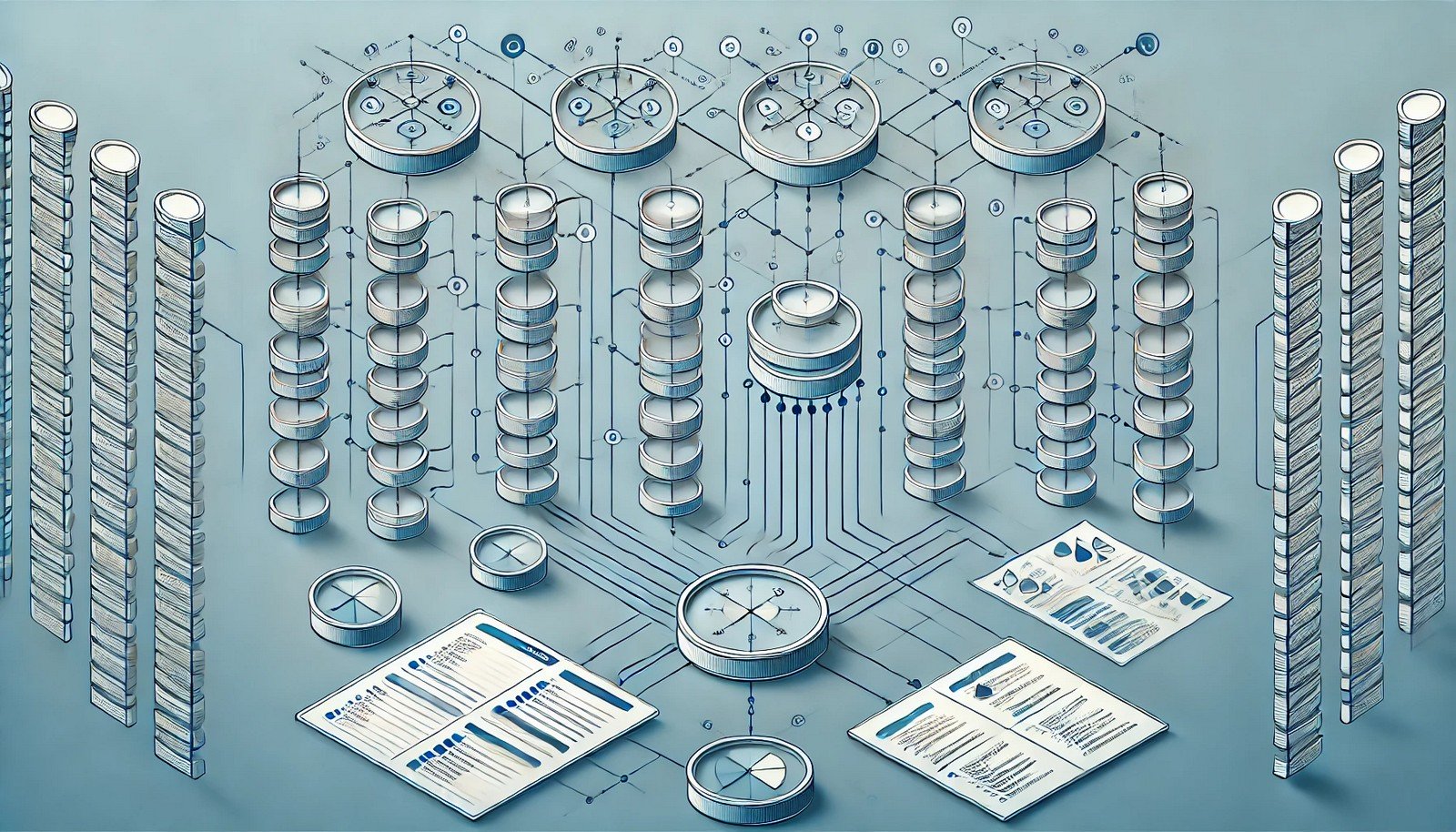Relational Database
 (Representational Image | Source: Dall-E)
(Representational Image | Source: Dall-E)
Quick Navigation:
- Relational Database Definition
- Relational Database Explained Easy
- Relational Database Origin
- Relational Database Etymology
- Relational Database Usage Trends
- Relational Database Usage
- Relational Database Examples in Context
- Relational Database FAQ
- Relational Database Related Words
Relational Database Definition
A relational database is a type of database that organizes data into tables, where each table consists of rows and columns. The relationships between tables are established through keys, ensuring data integrity and reducing redundancy. Relational databases use Structured Query Language (SQL) for data management and are widely used in applications like e-commerce, banking, and data warehousing. Popular relational database management systems (RDBMS) include MySQL, PostgreSQL, and Microsoft SQL Server.
Relational Database Explained Easy
Think of a relational database as a giant, organized library. Each table is like a shelf, with rows as books and columns as categories of information (title, author, genre). When you search for a book (data), the library helps you find it quickly and easily by organizing everything properly.
Relational Database Origin
The concept of relational databases was introduced by Edgar F. Codd in 1970. His pioneering paper, "A Relational Model of Data for Large Shared Data Banks," laid the groundwork for modern database systems.
Relational Database Etymology
The term "relational database" is derived from the relational model of data, emphasizing the use of relations (or tables) to organize data.
Relational Database Usage Trends
Relational databases have been a cornerstone of IT infrastructure since their inception. Recently, cloud-based RDBMS and hybrid solutions combining relational and non-relational databases have gained traction, addressing scalability and real-time analytics needs.
Relational Database Usage
- Formal/Technical Tagging:
- Data Management
- SQL
- Relational Model - Typical Collocations:
- "relational database schema"
- "SQL query"
- "relational integrity constraints"
- "relational database normalization"
Relational Database Examples in Context
- A relational database powers online shopping platforms by storing customer details and order histories.
- In healthcare, relational databases organize patient records and medical histories.
- Financial institutions use relational databases for transactions and reporting.
Relational Database FAQ
- What is a relational database?
A relational database organizes data into tables with rows and columns and uses keys to connect related tables. - How does a relational database differ from a non-relational database?
A relational database uses tables and predefined schemas, while non-relational databases store data in flexible, schema-less formats. - What is SQL in the context of relational databases?
SQL (Structured Query Language) is used to query, update, and manage data in relational databases. - Are relational databases scalable?
Yes, modern RDBMS solutions and cloud platforms enable horizontal and vertical scaling. - Why are relational databases important in businesses?
They provide reliable, structured data management essential for analytics, reporting, and operations. - What is database normalization?
Normalization organizes data to reduce redundancy and improve integrity. - Can relational databases handle big data?
While not always ideal for massive unstructured data, relational databases can integrate with big data systems for hybrid solutions. - What are primary and foreign keys?
A primary key uniquely identifies rows in a table, while a foreign key connects related tables. - Which industries heavily use relational databases?
Banking, e-commerce, healthcare, and education are key industries relying on relational databases. - What are the challenges of using relational databases?
Challenges include managing scalability for high-volume data and the complexity of maintaining relationships.
Relational Database Related Words
- Categories/Topics:
- Data Management
- SQL
- Database Administration
Did you know?
Relational databases underpin many iconic digital platforms, from search engines to social media, ensuring data remains accessible, consistent, and secure. They form the backbone of modern e-commerce systems.
PicDictionary.com is an online dictionary in pictures. If you have questions or suggestions, please reach out to us on WhatsApp or Twitter.Authors | Arjun Vishnu | @ArjunAndVishnu

I am Vishnu. I like AI, Linux, Single Board Computers, and Cloud Computing. I create the web & video content, and I also write for popular websites.
My younger brother, Arjun handles image & video editing. Together, we run a YouTube Channel that's focused on reviewing gadgets and explaining technology.



Comments powered by CComment